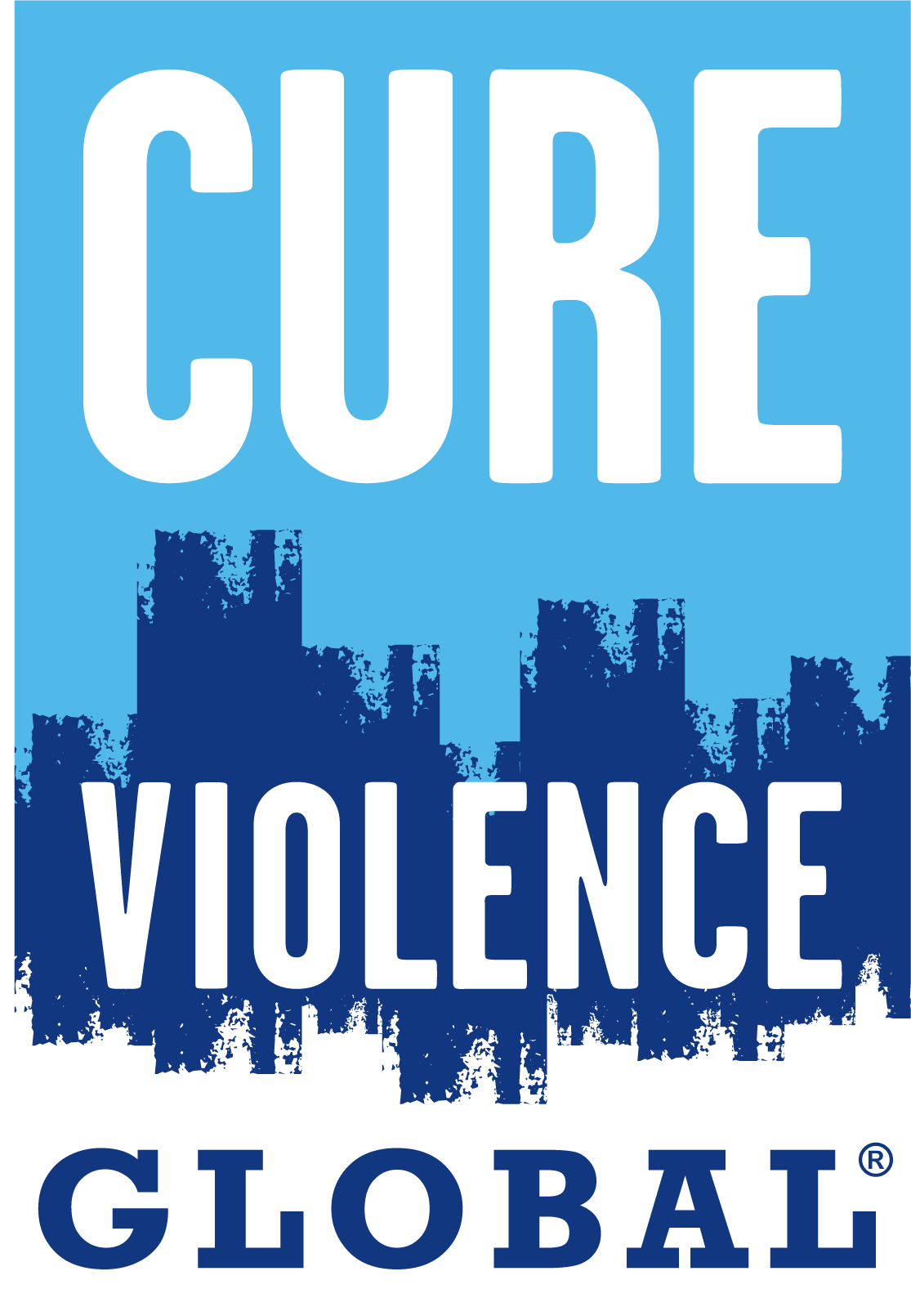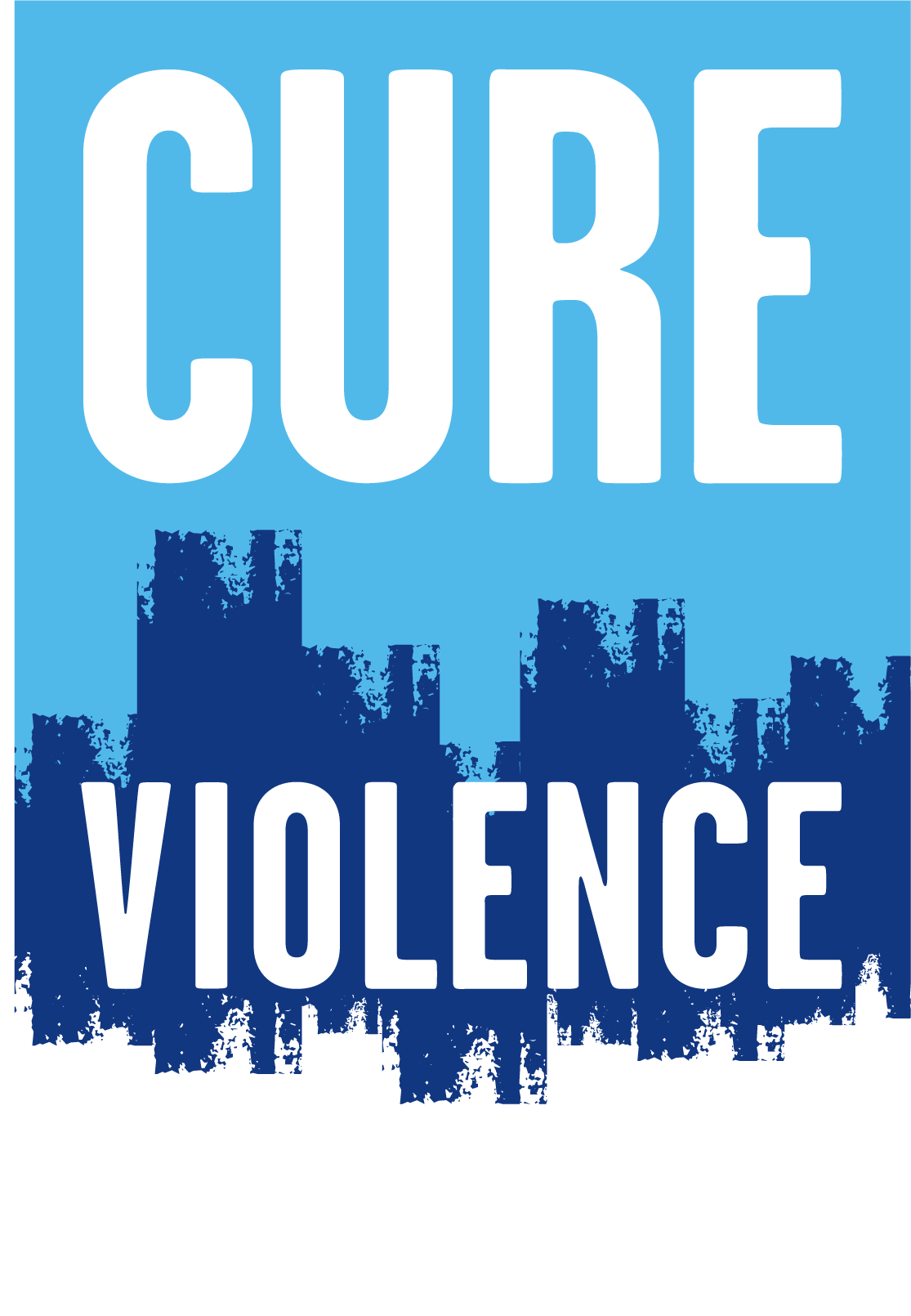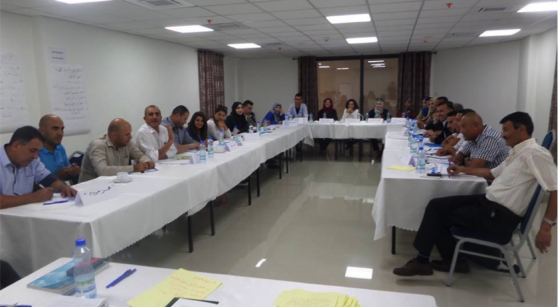Bottom Line Upfront
- Cure Violence has a network of individuals in 8 cities in the West Bank – Hebron, Bethlehem, Nablus, Tulkarem, Qalqilya, Jenin, Ramallah, and East Jerusalem – who have been trained in the Cure Violence Heath Approach and are using their training to interrupt violence within their own individual communities and train others in their communities
- Network members were brought together for 5 3-day trainings over the course of 2017. These individuals then conducted 10+ trainings in the West Bank, reaching more than 200 additional youth and adults
- Approximately 150 conflicts were peacefully mediated in the West Bank by network members as of the time of this writing
In 2016-2017, with generous support of some donors, Cure Violence partnered with the Salam Institute for Peace and Justice, to create a network of 23 trainers and violence interrupters from the cities of Hebron, Bethlehem, Nablus, Tulkarem, Qalqiliya, Jenin, Ramallah, and East Jerusalem. These individuals were trained in the Cure Violence approach to interrupting violence and in skills related to nonviolent communication, conflict mediation, mapping and detecting violence, and behavior/norm change.
As part of project, the Cure Violence trainees were given small grants to implement projects designed to put into practice what they had learned. Two of the teams (East Jerusalem and Hebron) focused on interrupting violence in their communities. The Jerusalem team, for example, which was composed of four trainees, interrupted 15 violent events and referred 32 people to vocational training or other services over the summer of 2017. Through their intervention, they reduced the number of injuries, prevented the injured from dying, and empowered more community members to participate actively in resolving conflicts. They also facilitated 3 prevention workshops at the community level, spreading what they had learned in the trainings and providing important skills necessary for resolving conflicts peacefully.
The Hebron team, comprised of four Cure Violence trainees working on the main street of the Fawwar refugee camp, interrupted 30 incidents of violence over a 2-week period in July 2017, benefiting 76 individuals. The Hebron team reported that many of the reasons for violence were day-to-day misunderstandings as opposed to being related to drugs, crime, or political reasons. During another intervention period, the Hebron team reported interrupting 60 cases of violence.
In Bethlehem, Hebron, and the north (combined effort of trainees from Nablus, Qalqiliya, Tulkarem, and Jenin), the Cure Violence project participants carried out further trainings, bringing the Cure Violence approach to more than 200 additional youth and adults. Those trained by the Cure Violence trainees included Palestinian security forces, UNRWA personnel, teachers and students at universities and lower-level schools, as well as individuals in refugee camps and in community centers.
In the final training, Cure Violence trainees stated their commitment to continuing to use the approach to prevent violence in the West Bank and East Jerusalem and requested additional training and support going forward. Many requested some official affiliation with Cure Violence, which we are not able to provide at this time. For our part, however, we are committed to try to identify additional funding to continue and expand this effort to interrupt violence and share the health approach with more individuals in the West Bank. We are so impressed with the high caliber of our Cure Violence trainees in the West Bank and their commitment to reducing violence in their communities. We are grateful to our partner, the Salam Institute, and to our local Coordinator Amal Hadweh, for their hard work, professionalism, and commitment to making the world a more peaceful place.
As promised, after completing the training in December 2017, Cure Violence trainees have continued to work toward reducing violence in their communities. We provide below (in their own words) two new success stories shared with us by Cure Violence network members in the weeks after the project concluded:
Success Story #1
“My name is Faten Asmar from Nablus and I work in a government school for girls. The school is located School Street so called because there are 13 schools on it for both boys and girls of different ages grade 1-12. The school I work in is an elementary school (ages 7-10, grades 1-4) in the Old City of Nablus that well known for the daily violence taking place there among students after they finish school and are on their way home.
After I have participated in the Cure Violence training, I decided to apply what I learnt to this context and be in the street every day after school. I have successfully interrupted 40 cases of beating and shouting. In addition I managed to take sharp and dangerous items like knives and scissors that the students carried with them as weapons. I used nonviolent communication to have the youth feel validated and be willing to give them up on their own accord.
In addition I also trained a team of youth ages 13-14 on the Cure Violence approach, focusing on how to create behavior change and interrupt violence in the street with me after school. I watched this group every day and observed significant changes in their behavior and the way they treated the other children.
The other story that I would like to tell is that I worked with different stakeholders in the city to open a garden for children, calling it the “Dream Garden”. Children and youth have started to play there and release some of the stress they hold inside. https://www.facebook.com/childhood.dreams.park/”
Success Story #2
“A young man came to my house threatening to kill his female relative and her boyfriend because they brought shame to his family. She was having a relationship with her boyfriend while being married. The visitor was furious and very angry. I calmed him down, listened to his story, and tried my best to make him feel as much comfortable as I can, explaining to him that killing and causing violence will result in more violence and hatred among all families concerned .
I advised him that it is good to breathe and think more deeply of the whole situation. After having coffee and again explaining the danger of harming both of them, I also told him how much the family would suffer if they found out. He was convinced and his mood changed. I promised him that I would talk to his female relative and her boyfriend, urging them to finish their relationship and have the boyfriend leave the area for some time. He agreed.
I did do what I promised him. I went to the woman and her boyfriend and they promised to finish the relation. The boyfriend left the city for some time and the women stayed with her husband safe.
My visitor was very thankful to me, explaining that I managed to help him feel ease and to contain his anger, or else he would have harmed or even killed his relative.”
These stories capture the essence of why we do the work we do: with targeted training and guidance, individuals and organizations can be empowered to reduce violence in their own communities, even in very dire situations such as in the West Bank. We hope that those reading will share these success stories and the power and potential of interrupting and stopping violence. And, if you are moved accordingly, we encourage you to Click here to make a donation to support Cure Violence’s ongoing work in the West Bank. (Please put “West Bank” in the comment section.)


